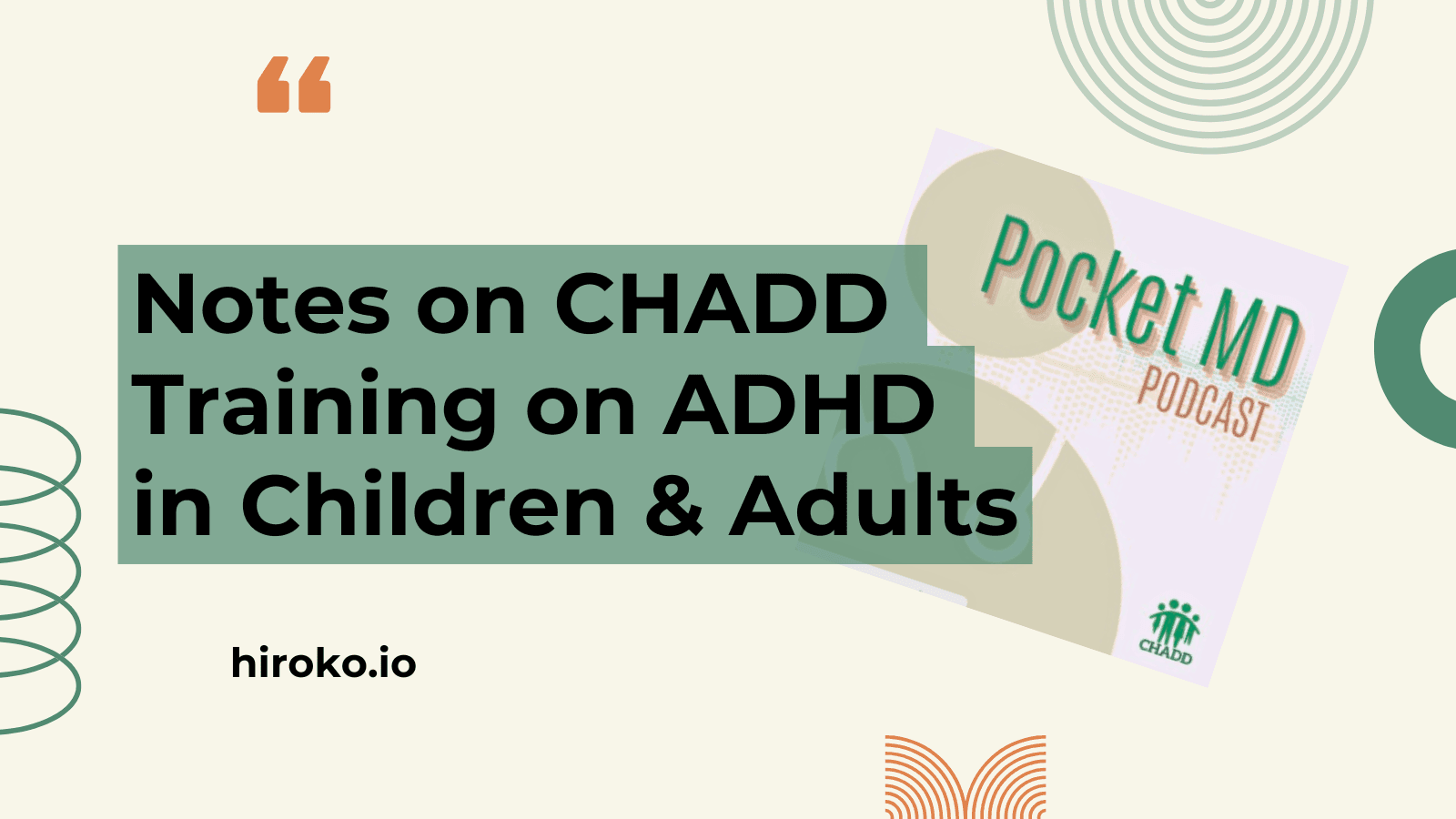This post summarizes the podcast titled “ADHD and Dyslexia” in the series “Training on ADHD in Children and Adults” by Pocket MD. Pocket MD is a podcast hosted by CHADD (Children and Adults with Attention-Deficit/Hyperactivity Disorder).
“ADHD and Dyslexia” (PD4457R-031525O)
What is Dyslexia?
- Dyslexia: language-based learning disorder affecting phonological processing, word processing, spelling, reading comprehension, but not related to intelligence, hearing issues, or vocabulary
- Spelling tends to not improve even with remediation and interventions
- A lot of people with dyslexia tend to be phonetic spellers
- Use spell check
- “Language-based” does not mean speaking issue; many are very articulate, leading to under-diagnosis
- Syllable segmentation issues
- Can be excellent auditory processors
- Spelling tends to not improve even with remediation and interventions
- 8~17% of population may have dyslexia
- Can affect self-esteem because of difficulties keeping up with peers and reading
- Strong cultural notion that strong readers = smart, and weak readers = not smart
- Important for adults and parents to label and let them know that they are different, but different is not defective
- Avoiding school and reading can look like oppositional conduct disorder
- Repeating grades is generally not productive
Causes of Dyslexia
- Neurobiological: Broca’s area activates when reading, but occipital temporal lobe and parietal temporal lobe are not activated as strongly
- Affects parts of the brain that recognize words, sounds, symbols
- Affects spelling, reading, reading comprehension
- Genetic: 40~50% of kids have a parent with dyslexia
- Affects boys and girls equally
Diagnosing Dyslexia
- Neuropsychological testing is very good at identifying dyslexia
- Many instruments available to look at reading
- Typically diagnosed through neuropsychological testing starting at age 6
- Neuropsychologist/school psychologist can administrator the tests
- Need to make sure student the issue is not poor reading comprehension potentially due to distractions or boredom
ADHD and Dyslexia
- Important to distinguish ADHD symptoms from dyslexia symptoms
- Kids with ADHD without dyslexia have problems reading because they’re bored, not because they are having issues with phonological awareness or processing
- Kids with ADHD may “misread” a word because of impulsivity or impatience, and not taking the time to read the word
- Don’t tend to see phonetic spellings (misspellings) for kids with ADHD without dyslexia
- When both exist, common that one will be undiagnosed
- Diagnosis usually around 5th grade because one goes from “learning to read” to “reading to learn” around 4th or 5th grade
- Kids can still do well in school, and my be severely overcompensating
- Parents must become their children’s advocate
- Advocate for accommodations in school
- More communication and collaboration between home and school the better
- Share how they are at home (especially if they are overcompensating at school and coming home exhausted)
- Find communities; Decoding Dyslexia
- Advocate for accommodations in school
Treating Dyslexia
- Different programs: Wilson program, Lindamood-Bell, Orton-Gillingham: empirically validated education remediation that helps with dyslexia
- Requires different type of teaching than non-dyslexic students; diagnosis is important
- Requires IEP (Individualized Education Plan) because it requires more than modification (504 Plan)
- If student has both ADHD and dyslexia, treating ADHD will help with the impulsiveness and distractions, which makes dealing with dyslexia much harder
- No medication for dyslexia
- Teach the brain to learn basics of phonemes and processing that comes naturally to neurotypical readers
Want to read more of my summaries?
Main page on this blog that collects all of these summaries (and links to course content) is here:
